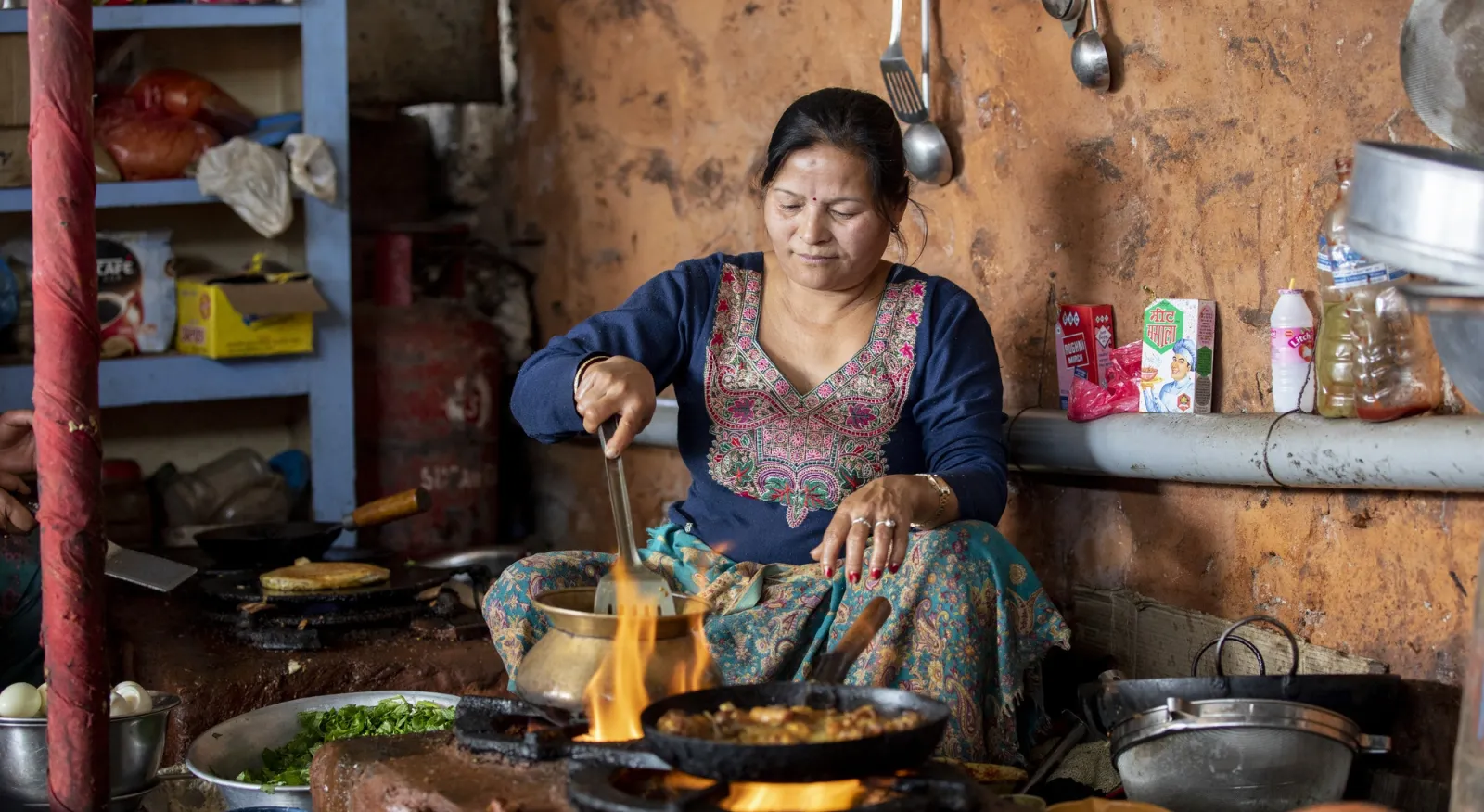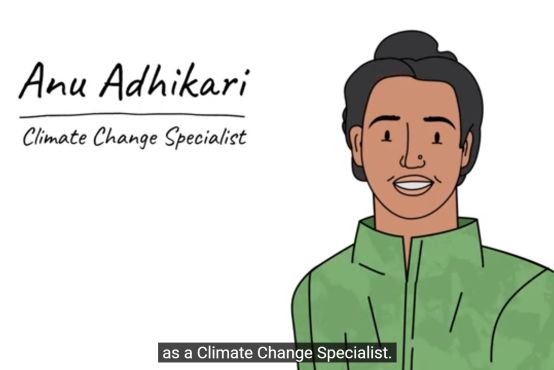
About Nepal
Nepal is a landlocked country in South Asia which is bordered by China in the north and surrounded by India in the East, West and South. Nepal is famous as the home of the eight highest mountains in the world, including the world’s highest, Mount Everest.
Nepal boasts a rich history that spans thousands of years. From around the 15th century, distinct cultures and civilizations developed in the valleys of the region, while the mountainous regions were inhabited by various ethnic groups. The modern-day Nepal was established in 1768.
Nepal’s history in the global colonial period is significant as, despite military conflicts, it maintained independence from colonial powers. More recently, Nepal experienced ten years of civil conflict from 1996 to 2006. In 2008, Nepal became a secular republic, and a new constitution was enacted in 2015. The subsequent years have seen a transition to a more inclusive political system.
Today, Nepal is a diverse nation with various ethnic and linguistic groups. The majority consists of Indo-Aryan communities, such as Paharis, Gurungs, Rais, Limbus, Magars and Newars, residing in the hilly regions, while Tibeto-Burman groups like Sherpas inhabit the northern mountainous areas. In the southern Terai plains, you find communities like the Tharus and Madhesis, each with unique cultural traditions. Additionally, numerous smaller indigenous groups contribute to the diverse tapestry of Nepali society.
Nepal’s economic position has had positives in more recent years, with a reduction in poverty. However, Nepal remains one of the poorest and slowest-growing economies in Asia. Nepal’s economy is largely dependent on subsistence agriculture, tourism and remittances by migrant Nepali workers. Two key challenges for Nepal economically are frequent changes in government and Nepal's infrastructure, which is vulnerable to frequent natural disasters. In 2015 two devastating earthquakes struck and caused major setbacks for the country.
Australia has a long history of supporting human and economic development in Nepal, and Australian volunteers have been supporting development in Nepal since 1999.
Learn more about the Australian Volunteer Program's work in Nepal.
Key things to consider about volunteering in Nepal
- Air quality in the Kathmandu Valley can be very poor, especially in winter. This is due to dust, pollution and industrial emissions.
- Specific dietary requirements or food intolerances may be difficult to accommodate. However, it can be quite easy to manage a vegetarian diet. As a predominantly Hindu country, beef is rarely available.
- Cultural sensitivity and respect are very important in Nepali society. Nepal is a culturally diverse nation with a deep-rooted respect for traditions and customs. It's essential for newcomers to show respect for customs, religious practices, and social norms. Proselytizing is not allowed in Nepal
- Modest dress is encouraged. Generally, women should not show bare legs. Kurtas are a popular option.
- While widely spoken in Kathmandu, English is not widely spoken in rural Nepal. Early language practice is encouraged and can have a positive impact on the volunteer experience.
Culture and religion
Nepali people are very friendly and courteous and have a strong sense of humour. They frequently engage in political discussions, and this is reflected in the media, which can be openly critical of the government and political leaders.
Family is a key component of Nepali society. Children often live with their parents until marriage, and even beyond. Elders and teachers in Nepal are treated with great respect. There is a well-established system of cultural hierarchy that operates in the workplace and people’s private and social lives, and this is not always immediately obvious to newcomers to Nepal. Office culture in Nepal tends to be relaxed, and time management may not meet Western expectations.
Forming around forty percent of the population, Brahmins, Chettris (including Thakuries) have dominated Nepal for centuries, holding control over much of the country's wealth and power.
Nepal adopted a caste system from India and, while discrimination based on caste has been illegal since the 1960s, it is still practiced in Nepal, particularly in rural areas.
Religion
Hinduism is the predominant religion in Nepal, influencing daily life, traditions, and festivals. While Buddhism also holds a significant presence Nepal, in the northern region communities such as Sherpas and Tamangs adhere to the Mahayana branch of Buddhism. Additionally, there are indigenous belief systems, which often incorporate nature worship. The constitution of Nepal guarantees freedom of religion.
Dress
Modest clothing is preferred throughout Nepal, and required in religious places such as pagodas, temples, and monasteries. Footwear is almost always removed when entering buildings and temples.
It is important to dress for the climate. Cotton clothing is recommended for hot and humid regions, waterproof footwear is recommended for wet weather, and warm clothing for colder regions. Central heating is not common in Nepal and streets can have poor drainage.
Language
English is not widely spoken in Nepal and learning a local language can be very important for volunteers. Nepal has 122 major languages. Nepali is spoken by 78% of the population either as first or second language and has official language status. The other 121 languages are all recognised national languages. Maithili is the second most spoken language.
The program provides funding to support language lessons. More information on this process will be available during the onboarding process.
Explore our Pride Guides
LGBTQIA+ program participants must be aware of the country's context before undertaking an assignment. Pride Guides are designed to introduce key issues related to people with diverse SOGISEC & their participation in the program.
Learn more
Day to day life
Climate
Due to its diverse topography, different parts of Nepal have different climatic conditions. The northern part of Nepal tends to be cold, while the southern parts tend to be warmer during summer. During winter, all parts of the country are cold, with the hills much colder than the plains. Evenings and nights in many parts of northern Nepal can be cool and at times freezing.
It is important to note the effects of climate change on day-to-day life and weather patterns in Nepal. This will look different based on location. According to the World Bank Nepal is highly vulnerable to climate change impacts, and its varied topography make it particularly susceptible to geological and climate-related disasters.
Telecommunications
Internet is available in major cities in Nepal; however, it can be slow and unreliable.
Food and dining
Dal bhat is the most eaten dish in Nepal, it consists of rice, lentils, and pickle, with seasonal vegetables. It may be served with meat (chicken, mutton or buffalo). Fresh vegetables are readily available. Supermarkets are found only in big cities.
It can be difficult to cater to food intolerances as it may be challenging to find specialty foods. There are a wide variety of vegetarian dishes in Nepali cuisine, however finding vegan options can be a little more challenging, as Nepalese food often includes dairy.
Accommodation
Housing in Nepal varies depending on the location and the type of accommodation. It may include limited bathroom and toilet facilities, basic kitchen and cooking facilities, a lack of appliances such as washing machines, dryers, heaters, dishwashing machines, air conditioners, electrical cookers etc. Electricity supply had vastly improved, but there can be intermittent supply, especially in the countryside. Levels of privacy and noise can also differ from experiences in other countries.
Find out about our in-country allowances
Transport
Due to Nepal's geography, road transportation is hazardous and subject to seasonal conditions. Volunteers will receive location-specific guidance on requirements for using local transport.
Partner organisation spotlight
In partnership with the Nepal Ministry of Forests & Environment, IUCN Nepal is enhancing the community resilience of indigenous women by strengthening their capacity to establish nature-based solutions. Learn more about this exciting project.

Personal Safety
When it comes to your safety and security you must be willing to adapt your behaviour and lifestyle to minimise the potential for being a target of crime. Like anywhere in the world, crime does exist in Nepal.
While Nepal is prone to natural disasters, such as earthquakes and floods, and can experience civil unrest, it is generally considered a safe place for travel and for foreigners.
Personal safety issues constantly evolve, we recommend you keep an eye on Smart Traveller for current information.
Mobility and Accessibility
We’re committed to ensuring that international volunteering is inclusive and accessible to Australians from a range of backgrounds, with diverse perspectives, identities and abilities.
To support this, access and inclusion plans are available for volunteers with disabilities to assess their needs and ensure their living and working requirements are fully considered. Indigenous Pathways is an Indigenous-led program that focuses on providing culturally safe, flexible and tailored support for Aboriginal and Torres Strait Islander volunteers.
The Australian Volunteers Program in Nepal has hosted same-sex couples, and Nepali society is open to different identities, however, same-sex couples are not legally recognised in Nepal.
Before applying for a volunteering assignment in Nepal, please do some further research on living in Nepal and the organisation you are hoping to volunteer with. Successful applicants will have the opportunity to discuss expected living and working arrangements with their recruitment officer.
Volunteering in Nepal
Learn from Athena who spent 12 months volunteering at the T.U. Teaching Hospital in Nepal, alongside speech language pathologist Prabha Dawadee.
